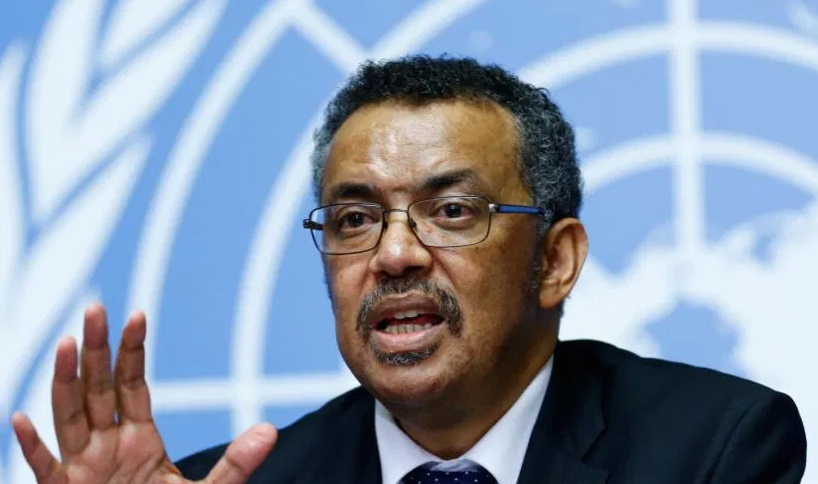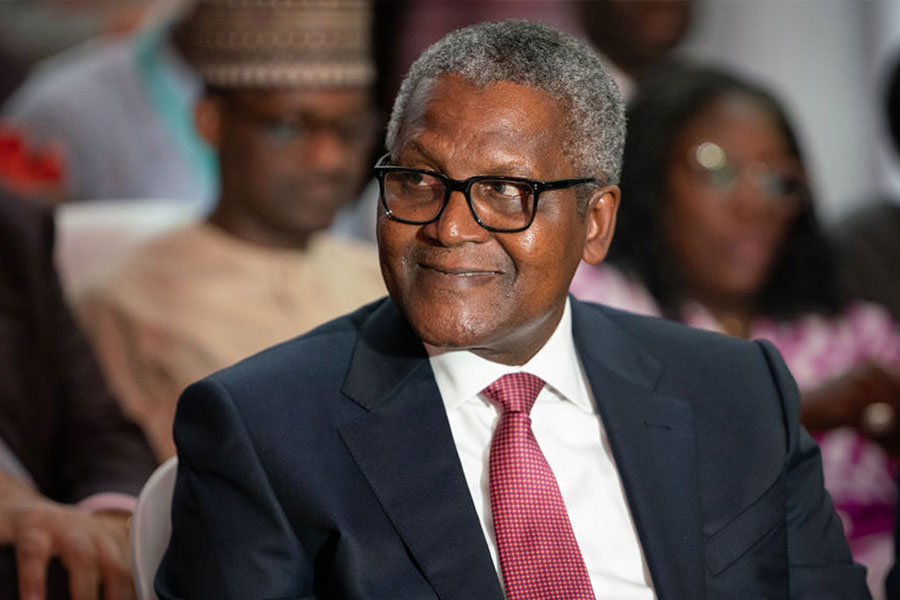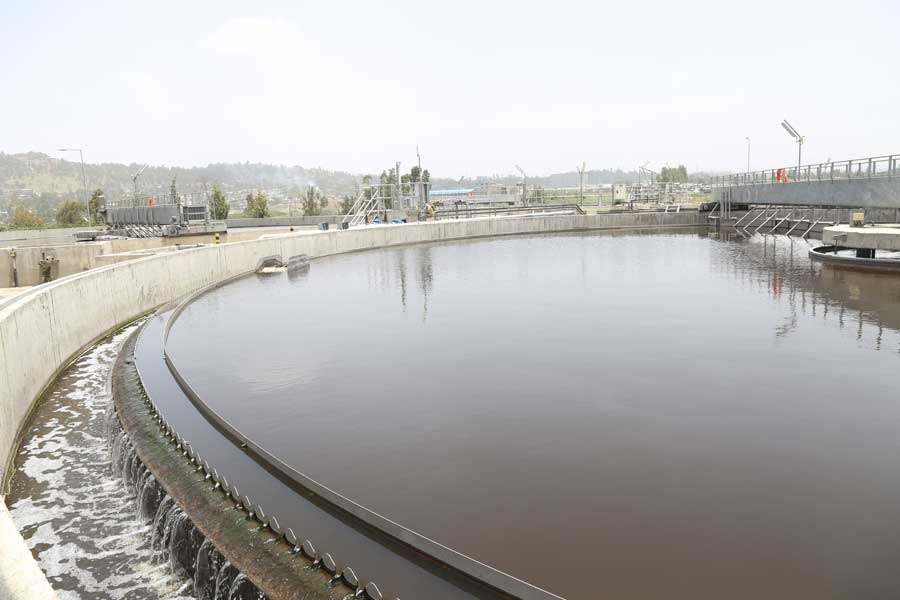
Commentaries | Apr 17,2020
On the morning of July 24, 2019, Tamiru Getaneh, a young driver who has been working for the Ethiopian Roads Authority (ERA), was in Gurara Wereda, Yeka District.
Working for the Authority for the last four years, Tamiru was one of 600 employees of the Authority who have been recruited and marched to Gurara to plant 6,000 saplings as part of a national tree-planting campaign launched by the government.
This round of planting is the second by the Authority employees, when on July 3, 2019, they installed 2,000 plants of different species on the premises of the Authority’s research centre in Qality.
For the two rounds, the Authority had spent 1.5 million Br to purchase the seedlings from various environmental bureaus and weredasand for ground preparations.
Tamiru, who is in his 20s, is participating in the tree-planting campaign for the second time. A couple of years ago, he planted trees at the Alemgena branch of the Authority located on the outskirts of the city on the road to Jimma, Oromia Regional State.
He recalls planting 30 tree saplings including the non-native Yeferenj Tsid[Cupressus lusitanica] and the native Koshim[Dovialis abyssinia]. Tamiru is hoping that the Authority will arrange a follow-up programme to maintain the trees.
Inspired by the latest campaign and responding to the latest call from the Office of the Prime Minister, the Authority plans to plant two million trees.
As most of the road projects harm the environment, the Authority took the initiative to mitigate this damage by allocating a budget to restore the landscape with every project it carries out, according to Habtamu Tegegne, head of the Authority.
For instance, under the Modjo-Hawassa Expressway, the Authority plans to plant one million seedlings on both sides of the road, according to him.
The latest campaign by the Office of the Prime Minister to plant the trees was an opportunity for the Authority, which commits to planting trees whenever it kicks- off new projects.
Six hundred employees of the Ethiopian Roads Authority have planted 6,000 tree seedlings at Yeka District, Gurara Wereda on July 24, 2019. It is part of the overall plan to plant two million seedlings within the period of the campaign.
Recently, Prime Minister Abiy Ahmed (PhD) launched a national reforestation campaign aiming to plant four billion trees with every participant committing to plant 40 trees on 1.9 million square metres of land. The campaign will culminate on July 29, 2019, with the planting of 200 million trees in a 12-hour period.
To facilitate the campaign, the Prime Minister has formed a national steering committee of four that includes four ministers and a commissioner: Umer Hassan, minister of Agriculture; Tilaye Gete (PhD), minister of Education; Sileshi Bekele (PhD), minister of Water & Electricity; Ayisha Mohammed, minister of Urban Development & Construction; and Fekadu Beyene (Prof.), commissioner for Forestry, Environment & Climate Change.
Under the steering committee, a technical committee has been established to follow up on the day to day performance of the campaign and report back to the steering committee.
One-fourth of the seedlings are indigenous types, according to the plan. The other plants are selected under four use categories: farmland, soil erosion prevention, cattle fodder and ornamental species.
The typical cost of a sapling is estimated to cost between 40 Br and 100 Br, with the total cost of procurement for four billion seedlings reaching 280 billion Br, a staggering figure that is equivalent to over two-thirds of the current fiscal year budget.
The Ministry of Innovation & Technology and the Ethiopian Space Science & Technology Institute are delegated to ensure the sustainability of the planted trees using a digital system.
The two institutions are in charge of identifying locations with GPS coordinates, according to Solomon Belay (PhD), director-general of the Institute.
"The data from the GPS will help to map the planting sites," Solomon said.
The latest initiative can play a significant role in increasing the national forest coverage from the current 15.5pc to 20pc next year, according to Fekadu.
The organisers of the campaign have also aspired to get a certification from Guinness World Records, breaking a record held by India, which planted 49.3 million tree saplings in one day using 800,000 volunteers. In 2016 India took the record from Pakistan, which succeeded in planting 847,275 trees a day in 2013.
An employee of the Ethiopian Roads Authority plants a tree at Gurara Wereda, Yeka District on July 24, 2019. The wereda has offered land and signed a contract with the authority for further maintenance of the planted trees.
Oromia Regional State has planned to plant the largest number of trees, 1.9 billion, followed by the Southern Nations, Nationalities & Peoples' Regional State, which is expected to plant 1.4 billion seedlings, while Amhara Regional State will plant 1.3 billion trees.
This is not the first time the government kicked off a mass tree planting campaign. During Ethiopian Millennium, an initiative was launched to plant two billion trees and two seedlings per head.
The project essentially failed, since no post-planting maintenance was implemented, according to Tefera Tadesse, a technical committee member from the Ministry of Agriculture.
"In this round, we will be conducting post-plantation follow up," says Tefera.
All of the institutions, which received land from districts for the planting of the trees, will sign a contract with the district administration to conduct a follow up on the condition of the planted trees for at least two years.
Three billion seedlings were collected from nurseries all over the country, while the remaining will be sourced from the private sector and civil societies, according to Tefera Mengistu (PhD), forestry expert and technical committee member.
Seventeen towns have been selected for a greening project using 760 million saplings on locations that include farmland, religious and private institutions, government compounds and along river banks, according to Ayisha.
The country has 18 million hectares of degraded land potentially suitable for afforestation and reforestation, according to the National Greening Action Program. Afforestation refers to planting forests on land without previous forests, while reforestation refers to replanting them on land where forests have been removed or destroyed.
The country is importing nearly half of its current industrial wood demand, spending approximately 124 million dollars a year, according to the National Forest Sector Development Program.
To meet this demand, Ethiopia should undertake large-scale plantations in addition to protecting the existing 17.4 million hectares of forest.
There are two categories of forests, non-native and native forests. Non-native forests constitute trees of foreign origin such as eucalyptus or cypress trees, which are biodiversity-deprived. Native forests are indigenous to a specific geographic region, according to Legesse Negash (Prof), a lecturer in the Department of Plant Biology & Biodiversity Management at the College of Natural & Computational Sciences of Addis Abeba University.
Legesse said it would have been good if the campaign considered planting only native trees to restore the degraded landscape.
While Legesse, the founder of the Center for Native Trees Propagation and Biodiversity Development, is generally supportive and enthusiastic about the tree planting initiative, he worries about the eventual success of the programme.
“I think we should stop fooling ourselves with quantity and begin to focus on quality, such that a reasonably larger proportion of seedlings will flourish,” Legesse suggested.
Feleke Woldeyes (PhD), deputy director of the Ethiopian Biodiversity Institute, agrees with Legesse. But with the country experiencing rapid degradation of its forestry resources, exotic species can be taken as a first option.
"The survival rate of the seedlings is high, and the growth rate of the trees is faster compared to native ones," said Feleke. "They cover the degraded areas faster and can be used as ornamental trees for city beautification."
The Institute has germinated and distributed 1.1 million indigenous seedlings, according to him.
Forestry expert Alemayehu Wassie (PhD), who serves as a board member and an adjunct professor at Bahir Dar University and board member at Debre Tabor University, appreciates the tree planting campaigns and argues that with uncontrolled grazing by cattle, the survival rate of the plantings will be reduced.
Alemayehu says that the experience of previous years exhibited that no more than 30pc to 40pc of the planted trees survive.
Other experts like Mulugeta Lemeneh (PhD), former head of Ethiopia programmes at Farm Africa, thinks the figures do not seem realistic and accurate, stating that none of the seed enterprises in the country has a capacity of supplying four billion seedlings.
"The Amhara and Oromia Seed Enterprises, which are active nurseries, do not even supply one million seedlings a year," says Mulugeta. "Unless the seedlings are fodder species, it is very hard to believe the figures."
PUBLISHED ON
Jul 27,2019 [ VOL
20 , NO
1004]

Commentaries | Apr 17,2020

Radar | Oct 12,2019

Radar | Nov 23,2019

Radar | Jun 19,2021

Radar | Aug 30,2025

Sunday with Eden | Jun 10,2023

Fortune News | May 29,2021

Fortune News | Dec 14,2019

Editorial | Mar 06,2021

Radar | Jun 18,2022

Dec 22 , 2024 . By TIZITA SHEWAFERAW
Charged with transforming colossal state-owned enterprises into modern and competitiv...

Aug 18 , 2024 . By AKSAH ITALO
Although predictable Yonas Zerihun's job in the ride-hailing service is not immune to...

Jul 28 , 2024 . By TIZITA SHEWAFERAW
Unhabitual, perhaps too many, Samuel Gebreyohannes, 38, used to occasionally enjoy a couple of beers at breakfast. However, he recently swit...

Jul 13 , 2024 . By AKSAH ITALO
Investors who rely on tractors, trucks, and field vehicles for commuting, transporting commodities, and f...

Oct 11 , 2025
Ladislas Farago, a roving Associated Press (AP) correspondent, arrived in Ethiopia in...

Oct 4 , 2025
Eyob Tekalegn (PhD) had been in the Governor's chair for only weeks when, on Septembe...

Sep 27 , 2025
Four years into an experiment with “shock therapy” in education, the national moo...

Sep 20 , 2025
Getachew Reda's return to the national stage was always going to stir attention. Once...